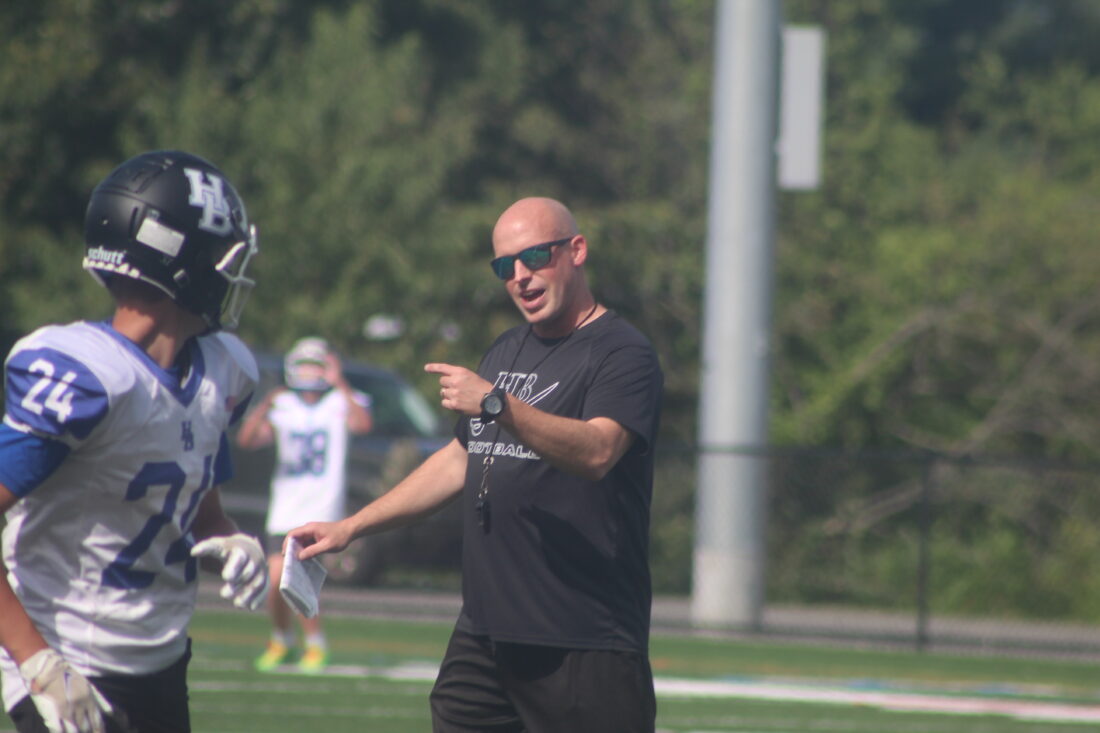Embracing Change: The Evolving World of High School Football Coaching
New Beginnings in Football Coaching
In the competitive landscape of high school football, coaches face a multitude of challenges. One of the most significant is navigating a world that is constantly evolving. Coaches like Hollis Brookline’s Patrick Gendron exemplify this transition, stepping into environments filled with new strategies, techniques, and player dynamics. The shift from traditional coaching methods to modern approaches marks a critical juncture for many educators in this field.

Hollis Brookline’s Patrick Gendron is an example of a coach who comes into an entirely new world from the outside. (Telegraph photo by TOM KING)
The Impact of Technology on Coaching
Today’s coaches are more than just strategists; they are also tech-savvy. The integration of technology in coaching has transformed everything from game analysis to player training. Tools like video analysis software enable coaches to break down gameplay, assess player performance, and adjust strategies in real time. This reliance on technology allows coaches to provide more tailored feedback to their athletes, honing their skills in unprecedented ways. The ability to track player health and performance metrics has also become vital, ensuring that student-athletes remain in peak condition throughout the season.
Building a Positive Team Culture
Beyond strategies and technology, fostering a positive team culture has become essential for coaches. Creating an environment where players feel supported and motivated can significantly impact performance. Gendron, and others like him, prioritize building camaraderie among players, emphasizing teamwork and communication. This approach not only enhances performance but also nurtures young athletes’ personal growth, teaching them valuable lessons in collaboration, empathy, and resilience.
Challenges of Transitioning Coaches
For coaches stepping into new roles, the transition can be daunting. Every school has its unique culture, and adapting to different expectations can be challenging. Coaches must learn to read the dynamics of the team and understand the backgrounds of their players, often requiring a sensitive approach. Gendron’s experience highlights the importance of listening and observing before implementing changes, ensuring that his strategies resonate with the existing team culture.
Focus on Player Development
At the heart of high school football coaching lies the commitment to player development. Coaches are tasked with not only sharpening athletic skills but also fostering the personal growth of their players. Gendron emphasizes holistic training that addresses physical, mental, and emotional fitness. Workshops, mentorship programs, and engaging in community service are ways to help players develop well-rounded character traits that extend beyond the football field.
Community Engagement and Support
Football programs are often a focal point within their communities, uniting fans, families, and local businesses. Successful coaches recognize this and actively seek to engage the community. Gendron’s approach includes organizing community events that enhance team visibility and foster local support. Building strong ties with the community not only boosts team spirit but also creates a network of support that players can rely on both on and off the field.
Adapting to New Rules and Regulations
With the changing landscape of youth sports, coaches must stay informed regarding new rules and regulations. Safety concerns, particularly around concussions and player welfare, have led to stricter protocols. Coaches like Gendron must ensure adherence to these guidelines, balancing competitive drive with player safety. Continuous education and training on these topics are essential for modern coaches, equipping them with the knowledge needed to protect their athletes while fostering competitive spirit.
Emphasizing Mental Health Awareness
An increasingly important aspect of coaching in today’s world is mental health awareness. Coaches are often the first line of support for their athletes, who may face pressures ranging from academic demands to social challenges. Gendron’s focus on creating a supportive atmosphere includes regularly checking in with players about their mental well-being. By being proactive in this area, coaches can help destigmatize mental health discussions and encourage players to seek help when needed.
The Future of High School Football Coaching
Looking forward, the role of the high school football coach will continue to evolve. Embracing change will be crucial for those preparing to lead the next generation of athletes. With advancements in training technology, ongoing discussions around mental health, and the importance of community engagement, the future promises to be both challenging and exciting for coaches like Patrick Gendron. Their adaptability, commitment, and passion will shape not only the game but the lives of countless young athletes.

